Introduction
When the chill of winter sets in, it’s easy to think the garden needs a rest, but nature never really stops working beneath the surface. Even when your plants are quiet, your soil is still alive and thriving. Using compost through the colder months can make a huge difference to your garden’s health come spring - feeding your soil, protecting its structure, and helping you garden in harmony with the planet.
Why Use Compost in Winter?
1. Nourishment for Resting Plants
Compost is packed with slow-release nutrients that gently feed your soil throughout winter. Even while your plants appear dormant, their roots are still absorbing goodness, setting the stage for strong, healthy growth once the temperatures rise again.
2. Stronger, Healthier Soil
Winter is the perfect time to build better soil. Adding compost as a soil improver improves structure, aeration, and moisture retention keeping your soil crumbly, rich, and ready to burst into life when spring arrives.
3. Protecting Peatlands
By choosing peat-free compost (like Wildmore Compost’s), you’re doing your part to protect vital peatland ecosystems. Peatlands store huge amounts of carbon and support biodiversity so using a premium, peat-free blend means your garden thrives without costing the earth.
Winter Gardening Tips
Choose the Right Winter Crops
Some plants love cooler weather. Think kale, carrots, garlic, and brussel sprouts. These hardy crops benefit hugely from compost’s nutrients, keeping your beds productive even in the colder months.
Prep Before the Frost
Before winter truly sets in, give your garden a quick tidy. Remove old plants, clear debris, and apply a generous layer of compost. This will protect your soil, boost fertility, and make your spring preparation effortless.
Feed and Protect Winter Beds
A light top-up of compost around your winter crops helps insulate roots, retain moisture, and keep nutrients circulating through the soil, giving your plants the best possible head start for next season.
How to Apply Compost in Winter
Best Timing & Technique
Apply compost before the first frost if possible. A 2–3 cm layer spread over your beds will act like a natural blanket, protecting soil life and preventing nutrients from washing away.
Watch the Weather
Avoid applying compost to frozen or waterlogged soil. Wait until it’s slightly thawed and just moist enough to work with. This ensures the compost integrates well with the existing soil structure.
Layer, Don’t Smother
Several thin layers over time can be more effective than one thick one. This allows air and moisture to circulate freely and helps beneficial microbes keep doing their job all winter long.
Mulching with Compost
Mulching is one of the simplest ways to protect and feed your soil in winter, and compost makes the perfect mulch.
How to Use Compost as Mulch
Spread a 2–3 inch layer of compost around your plants or over empty beds. It will slowly break down over the coming months, enriching your soil and helping to regulate temperature and moisture.
The Benefits
Using compost as mulch reduces weed growth, prevents erosion, and keeps your soil ecosystem active all while recycling organic material that might otherwise go to waste.
Peat-Free Gardening All Year Round
Every time you choose peat-free, you make a positive impact. Peat-free alternatives like coir, leaf mould, and well-rotted organic matter provide all the structure and water retention of peat, without damaging the planet’s natural carbon stores.
Wildmore Compost is crafted with care to bring you a sustainable, nutrient-rich blend that supports both your plants and the planet. Perfect for winter and beyond.
Conclusion
Even when your garden looks still, there’s life happening underground. Using compost through the winter months nurtures that life, improving your soil, feeding your plants, and helping protect our planet’s natural habitats.
So this winter, don’t hang up your gardening gloves just yet. Keep feeding your soil, caring for your plants, and watching your garden thrive the Wildmore way.



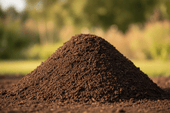


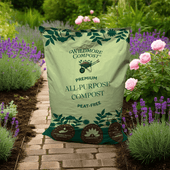
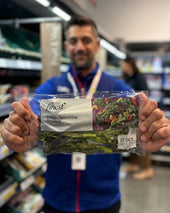
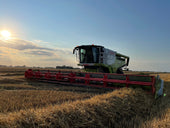








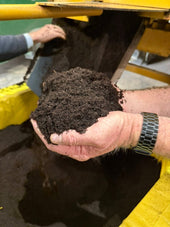



0 comments